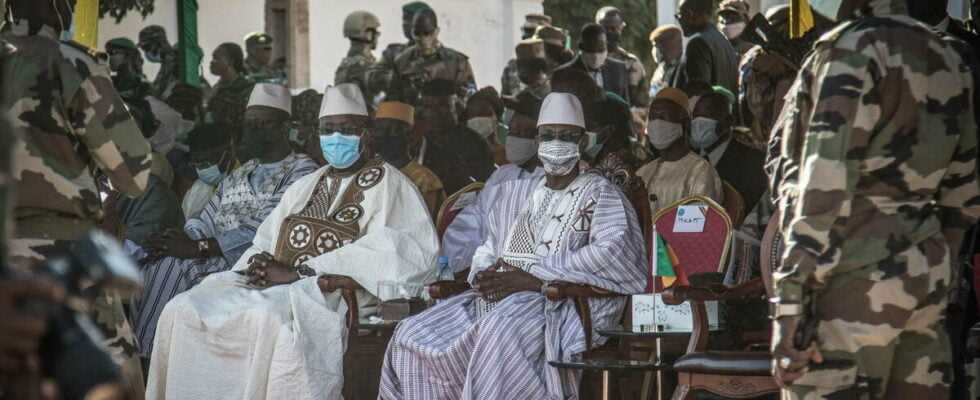After the economic sanctions taken by the Economic Community of West African States (ECOWAS) against the Malian transitional authorities, the European Union decided on Friday to also apply repressive measures against Bamako, but by targeting five Malian power figures. The five members of the junta targeted are the Prime Minister, Choguel Maïga, the President of the National Transitional Council (CNT), Malick Diaw, the Minister of National Reconciliation, Ismaël Wagué, and the activist of the Yerewolo group Adama Ben Diarra, also a member of the CNT. According to an EU statement, they are “responsible for actions that hinder and compromise the smooth running of the political transition in Mali”. Neither the president of the transition, Assimi Goïta, nor the government spokesman, Abdoulaye Maïga, who recently called on the Minister for the Armed Forces, Florence Parly, to be silent, or the Minister for Foreign Affairs, Abdoulaye Diop, who told the French ambassador to Mali his expulsion, are not part of the sanctioned.
These sanctions follow a decision taken by Mali’s European partners, after a diplomatic escalation between France and the Malian authorities which began with the August 18, 2020 coup against Ibrahim Boubacar Keïta. On 13 December, the European Council set up “an autonomous framework of sanctions against persons responsible for threatening the peace, security or stability of Mali, or for obstructing the implementation of its political transition”, states the press release. The five members designated by these latest sanctions are now subject to a travel ban in Europe, which prevents them from entering or transiting EU territories, as well as a freezing of their assets. The EU now prohibits EU citizens and businesses from making funds available to sanctioned individuals, either directly or indirectly.
Return “to the negotiating table”
Sunday January 9, it was ECOWAS which was the first to take the decision to crack down, closing its borders with Mali and applying a commercial and financial embargo. Heavy measures aimed at hindering the maintenance of the junta which plans to remain in power until December 2025, as it had suggested after the national assizes in December. But this decision was contrary to the agreement concluded with ECOWAS on September 15, 2020 and to the commitment made in the “transition charter”, fixing the organization of new elections on February 27, 2022.
These European sanctions were still in the process of legal grooming in Brussels a few days ago. Their publication had been postponed following the visit of the Malian Minister of Foreign Affairs at the end of January to Brussels. But the continuation of diplomatic tensions and the significance of the expulsion of the French ambassador to Mali completed their announcement.
“We gave the junta maximum time to find viable compromises, explains a European diplomatic source in Bamako. But after the meeting with Mr. Diop in Brussels, we did not obtain satisfaction. These sanctions are not final. Their objective is above all to bring the Malians back to the negotiating table in order to arrive at a reasonable solution.
